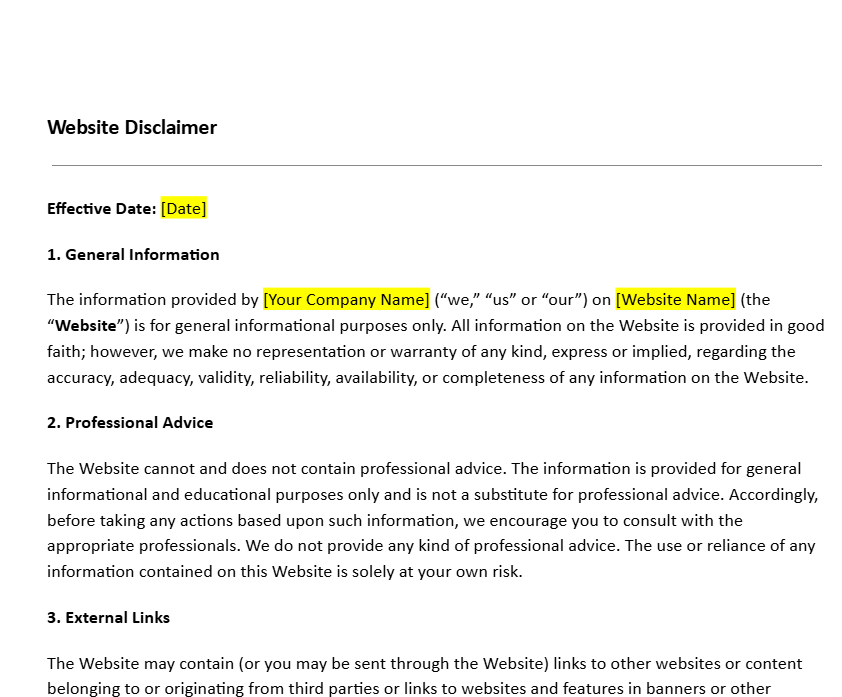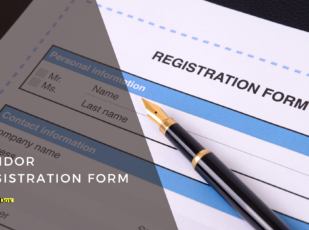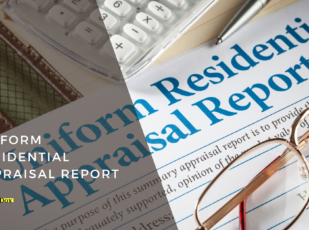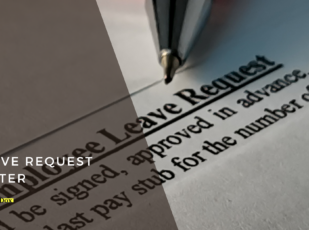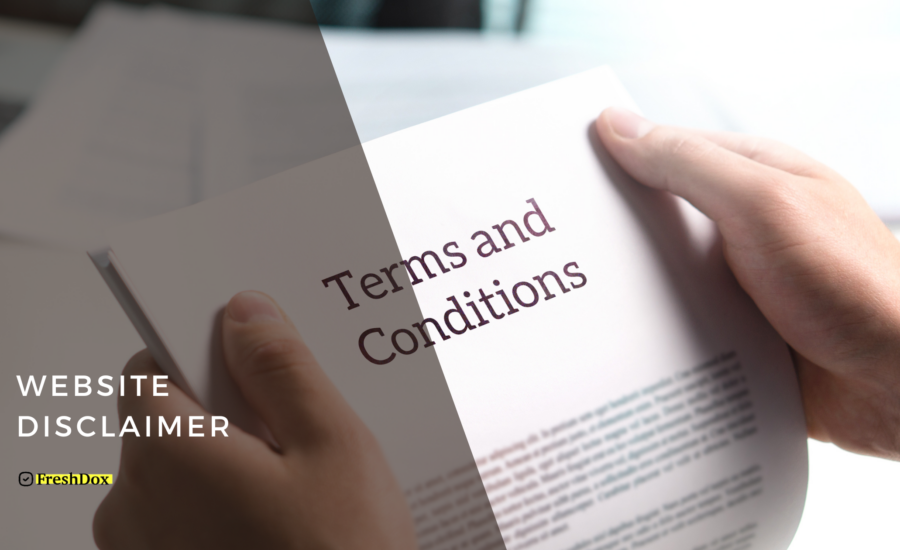
Website Disclaimer Template (Word & PDF)
19 Downloads
IT and Media
March 11, 2025
Sayantani Dutta
Website Disclaimer Template is the small block of legal text that quietly does a lot of heavy lifting for your online business. A website disclaimer minimises the legal responsibility and liability of a website, helping protect business owners from lawsuits, complaints, and regulatory issues when users rely on the content they consume.
You will find these disclaimers on e-commerce sites, blogs, podcasts, YouTube video descriptions, and social media pages—anywhere content is published online. A well-drafted website disclaimer template clearly explains what your site does and does not do, setting user expectations before problems arise.
If you are launching an online store, publishing financial or health content, or building a content-driven platform, a website disclaimer template helps clarify your position. It is a short piece of wording with a very important job: defining your limits, protecting your brand, and communicating transparently with visitors.
Understanding Website Disclaimers – Why You Need a Website Disclaimer Template
A website disclaimer is a legal notice, usually placed in the footer or legal section of a site, that limits the site owner’s liability and explains how the content should be understood. A website disclaimer template gives you a structured starting point to create this notice for your own website.
You will often see disclaimers on e-commerce websites where they disclose affiliate relationships or notify users that products are provided without guarantees beyond what is required by law or stated in the terms. You will also see them on blogs or channels that offer financial, legal, or business information, where the audience must be told that the content does not constitute professional advice.
A website disclaimer does not replace tailored legal advice, but it offers an extra layer of protection for the website owner. It can support compliance with regulations such as privacy and data protection laws and endorsement and advertising guidelines that require clear disclosure of relationships and risks.
Many website disclaimers also reference intellectual property and copyright, making it clear that the content is protected and may not be copied or republished without permission. For companies, using a website disclaimer template is an efficient way to keep users informed of the risks of using the site and to define the limits of responsibility.
If someone misuses your content or expects guaranteed results from an article, video, or post, your responsibility disclaimer states that outcomes can differ and that users act at their own risk. This helps reduce legal exposure and sets realistic expectations for how your content should be interpreted.
Types of Website Disclaimers – Choosing the Right Website Disclaimer Template
Website disclaimers can be tailored to different industries and content types, which is why working from a flexible website disclaimer template is so useful. Several common types include:
General Legal Disclaimer: A broad statement that clarifies that information on the site is provided “as is” and should not be treated as personalised legal, financial, or professional advice. It often states that visiting the site does not create an attorney-client or advisor-client relationship.
Medical or Health Disclaimer: Used on health, wellness, fitness, or nutrition sites. It explains that content is for informational purposes only and should not be used as a substitute for professional medical advice, diagnosis, or treatment. Visitors are told to consult a qualified professional before acting on the information.
Earnings and Results Disclaimer: Common on business, marketing, or investment sites. It explains that past results, testimonials, or case studies are not typical and do not guarantee future outcomes.
In addition, website owners can add:
Affiliate Disclaimer to disclose that the site earns commissions from certain links or partners.
Warranty Disclaimer to explain that products or services are provided without additional warranties unless expressly stated.
A versatile website disclaimer template can be adapted to combine these elements so that your e-commerce site, blog, or online platform is aligned with your business model and the regulations that apply to you.
What a Website Disclaimer Template Typically Contains
A good website disclaimer template is not a random collection of legal phrases. It usually contains several key components that work together to define responsibility and expectations.
Limitation of Liability: This clause explains that the website owner is not liable for errors, omissions, or consequences arising from the use of the content, to the extent permitted by law. It helps protect against claims when visitors rely on or misinterpret information.
Informational Use Only: Many disclaimers state that content is provided for general informational and educational purposes and does not constitute professional advice. This discourages users from treating a blog post or article as personalised guidance from a lawyer, doctor, or financial advisor.
Affiliate and Advertising Disclosure: If your site includes affiliate links, sponsorships, or endorsements, the disclaimer can remind users that you may receive compensation when they click certain links or purchase products. This supports trust and helps meet advertising and disclosure standards.
Intellectual Property and Copyright: A website disclaimer template often includes language referencing copyright and intellectual property, explaining that text, images, logos, and other materials belong to the website owner or licensors. It may state that unauthorised copying or distribution is not allowed.
Reference to Terms and Policies: The disclaimer can link conceptually to your terms of use and privacy policy, making it clear that by using the site, visitors accept the applicable terms and understand how their data is handled.
These elements can be tailored and expanded according to your risk profile and legal requirements, which is why starting from a structured website disclaimer template is far easier than trying to draft one from scratch.
Why Use a Website Disclaimer Template? – Benefits and Protections
Publishing a clear disclaimer using a website disclaimer template offers several advantages for your online business or personal site. The most obvious benefit is risk reduction. When users are told that your content is informational and that outcomes may vary, it becomes harder for them to claim they were misled.
For example, if a reader follows general financial tips from your blog and experiences losses, a properly worded disclaimer explains that the information is not individual investment advice. Similarly, an e-commerce store using a warranty and responsibility disclaimer clarifies that some issues fall outside the store’s control.
Disclaimers also help with expectation management. An earnings disclaimer makes it clear that examples and testimonials reflect individual experiences, not guaranteed results. This kind of transparency builds credibility and fosters trust with your audience.
From a compliance perspective, a website disclaimer can support your efforts to meet disclosure and transparency requirements, especially for endorsements and affiliate relationships. It shows that you are taking reasonable steps to inform users about how your site operates.
If a dispute arises, being able to show that visitors were informed of limitations and responsibilities through a visible disclaimer can strengthen your position. While it is not a complete shield, it is an important part of a broader legal and risk-management strategy.
Creating Your Own Disclaimer – Using a Website Disclaimer Template Effectively
When you are ready to create your own disclaimer, a website disclaimer template is often the most efficient starting point. Templates provide a pre-structured framework covering key areas like limitation of liability, informational use, intellectual property, and disclosures.
From there, you can adapt the wording to match your brand and the nature of your site. For example, an e-commerce brand might emphasise product, shipping, and warranty limitations, while a blog focused on wellness might place more emphasis on medical and health disclaimers.
Online tools and examples can also help you see how other businesses frame their disclaimers. You can review how affiliate disclosures, testimonial disclaimers, and earnings disclaimers are stitched into a single, readable statement that does not overwhelm visitors.
Even when starting from a strong website disclaimer template, it is wise to review the final wording in the context of your overall legal setup—terms of use, privacy policy, and any specific regulations you must follow. In more complex situations, getting professional legal input can ensure that your disclaimer is suitable for your jurisdiction and business model.
The Advantage of Using a FreshDox Website Disclaimer Template
A FreshDox Website Disclaimer Template is designed to save time while giving you a solid legal structure to work from. The template includes key clauses commonly expected in modern website disclaimers, such as limitation of liability, informational use, affiliate disclosures, and intellectual property language.
Because the template is already organised into logical sections, you do not have to worry about which topics to include or how to structure them. You can focus on adjusting the details to reflect your site’s activities, whether that is blogging, coaching, e-commerce, content creation, or a mix of different services.
This approach brings consistency to your legal pages, helps you avoid overlooking important points, and allows you to align your website disclaimer with your other documents. Instead of drafting from a blank page, you are refining a professional framework that has been purpose-built for online businesses.
Download a Website Disclaimer Template from FreshDox
When you want to add or upgrade a disclaimer on your site, starting with a Website Disclaimer Template from FreshDox makes the process straightforward. You can download the template in Word or PDF format, customise it to reflect your content and risk profile, and add it to your website footer or legal pages.
Explore the wider FreshDox collection of business and legal templates to support other areas of your online presence, from terms of use and privacy notices to contracts and internal policies. A well-structured website disclaimer template is a simple but important step towards protecting your content, clarifying responsibilities, and communicating openly with your audience.
Popular searches:
- Website Disclaimer Template (Word & PDF) pdf
- Website Disclaimer Template (Word & PDF) sample
- Website Disclaimer Template (Word & PDF) download
- Website Disclaimer Template (Word & PDF) format
- Website Disclaimer Template (Word & PDF) template
- Website Disclaimer Template (Word & PDF) word
- Website Disclaimer Template (Word & PDF) free
Related Templates
Discover more templates that align with your needs and preferences.

Ready to Sign Up?
Sign up for FreshDox.com’s 7-day trial and discover why so many individuals and businesses trust us for their legal document template needs.
- Cancel any time
- 7-day free trial
- From 300+ Customer Reviews

